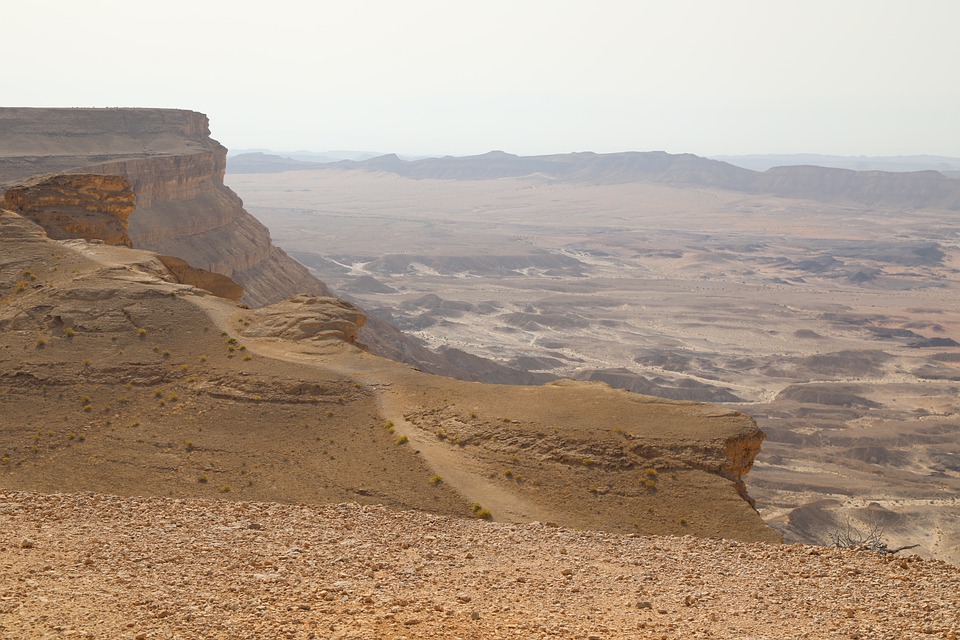The accuracy of the stories featured in the Bible has sparked debate amongst historians and scholars as skeptics have passed off the events detailed in scripture as fictional accounts. However, a discovery made by archaeologists in Israel could further prove the Bible’s, specifically the Old Testament’s accuracy.
Express reports that researchers from the University of Haifa have unearthed the Jezreel winery that was referenced in the book of Kings in the Bible’s Old Testament. First discovered in 2013, archaeologists have since made further digging into the place, that served as the backdrop of the story of Queen Jezebel, who executed Naboth, the owner of the winery in Jezreel, so her husband King Ahab could assume ownership.
Although they were able to find the fabled setting and predict when it was last used, they have yet to determine when this winery was constructed. According to Dr. Norma Franklin of the Zinman Institute of Archaeology, “With these kinds of structures, we can assess when was the last time they were used - in this case, quite late, around the first century BCE - but not when they were built. The events that are described in the Bible are usually considered to take place around the ninth century BCE.”
Dr. Franklin added that there are scholars who believe that the story in the Bible was written three centuries later, around sixth century BCE, which was when the winery was already likely to be operational.
Bible historian Professor Tom Meyer also believes that the winery that was discovered could be the actual winery that was written in the book. Professor Meyer explained that King Ahab chose the city of Jezreel as the winter capital for reasons such as his textile interests and the fertile grounds that would be suitable for agriculture.
Meanwhile, it was previously reported that some researchers were able to find some archaeological evidence relating to the life and times in the town of Nazareth, the place where Jesus Christ grew up. According to the Director of the Nazareth Archaeological Project, Ken Dark, their findings suggest that Nazareth was a lot bigger than was initially believed, and its residents were known to be very conservative and anti-Roman.
Along with their conservative values, their research further suggested that their beliefs and practices, both political and spiritual, may have clashed with the teachings of Jesus Christ. The teachings of Jesus Christ were supposedly controversial among the residents of Nazareth, especially those who wanted to differentiate themselves from the Romans.



 Neuren Pharmaceuticals Surges on U.S. Patent Win for Rare Disorder Drug
Neuren Pharmaceuticals Surges on U.S. Patent Win for Rare Disorder Drug  Tabletop particle accelerator could transform medicine and materials science
Tabletop particle accelerator could transform medicine and materials science  Senate Sets December 8 Vote on Trump’s NASA Nominee Jared Isaacman
Senate Sets December 8 Vote on Trump’s NASA Nominee Jared Isaacman  SpaceX’s Starship Completes 11th Test Flight, Paving Way for Moon and Mars Missions
SpaceX’s Starship Completes 11th Test Flight, Paving Way for Moon and Mars Missions  Trump and Merck KGaA Partner to Slash IVF Drug Costs and Expand Fertility Coverage
Trump and Merck KGaA Partner to Slash IVF Drug Costs and Expand Fertility Coverage  Astronomers have discovered another puzzling interstellar object − this third one is big, bright and fast
Astronomers have discovered another puzzling interstellar object − this third one is big, bright and fast  Eli Lilly’s Inluriyo Gains FDA Approval for Advanced Breast Cancer Treatment
Eli Lilly’s Inluriyo Gains FDA Approval for Advanced Breast Cancer Treatment  Neuralink Plans High-Volume Brain Implant Production and Fully Automated Surgery by 2026
Neuralink Plans High-Volume Brain Implant Production and Fully Automated Surgery by 2026  Cogent Biosciences Soars 120% on Breakthrough Phase 3 Results for Bezuclastinib in GIST Treatment
Cogent Biosciences Soars 120% on Breakthrough Phase 3 Results for Bezuclastinib in GIST Treatment  Blue Origin’s New Glenn Achieves Breakthrough Success With First NASA Mission
Blue Origin’s New Glenn Achieves Breakthrough Success With First NASA Mission  CDC Vaccine Review Sparks Controversy Over Thimerosal Study Citation
CDC Vaccine Review Sparks Controversy Over Thimerosal Study Citation  FDA Pilot Program Eases Rules for Nicotine Pouch Makers
FDA Pilot Program Eases Rules for Nicotine Pouch Makers  SpaceX Pivots Toward Moon City as Musk Reframes Long-Term Space Vision
SpaceX Pivots Toward Moon City as Musk Reframes Long-Term Space Vision 




























